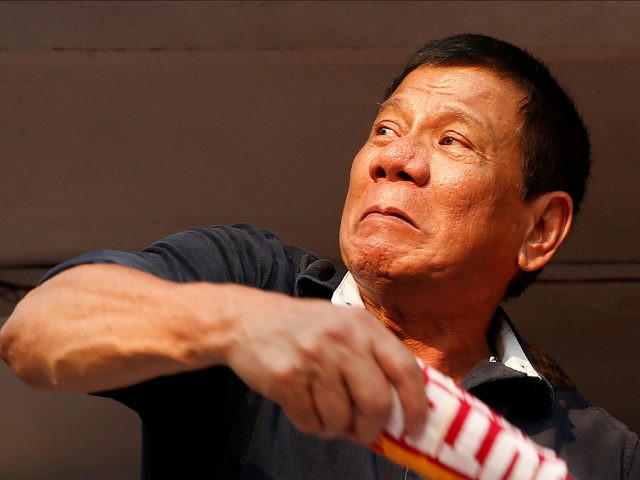The United Nations special rapporteur on extrajudicial killings Agnes Callamard made an unannounced visit to the Philippines where she gave a speech at a policy forum in Quezon City on Friday.
Although she was not acting in her official role, President Rodrigo Duterte criticized her visit, doubling down on his controversial tactic for fighting drug trafficking.
“And here’s the shocker: I will kill you,” Duterte said in a speech to an orthopedic conference in Davao on how he will deal with drug dealers. “I will really kill you.”
Presidential spokesman Ernesto Abella said that, by arriving in the Philippines without notifying authorities, Callamard is sending a “clear signal” that she is on a campaign to undermine Duterte’s efforts to end the scourge of drugs in the country.
Last month, a Philippine lawyer filed a complaint at the International Criminal Court (ICC) accusing Duterte of committing a “crime against humanity” through his crackdown on drugs that has resulted in the death of more than 7,000 people.
Abella refuted allegations at the time, saying that, while “the so-called extra-judicial killings are not state-sanctioned or state-sponsored,” the lawyer in question meant to “undermine the duly constituted government of the Philippines.”
“The ‘war on drugs’ does not work,” Callamard said in her speech, which criticized the use of violence to fight the illicit drug trade.
Callamard also praised “the brave work of civil society actors, lawyers, human rights defenders, academics, senators” who have opposed Duterte.
Callamard’s visit to the Philippines coincided with the United Nation’s Human Rights Council’s Universal Periodic Review in Geneva, Switzerland — an event that takes place every four years.
Philippine Drug Enforcement Agency (PDEA) Director General Isidro Lapeña, part of the 16-member Philippine delegation attending the conference, defended his government, saying that it should be allowed to determine the “best approach” against its drug problem.
“While the drug problem is a common and shared responsibility, we underscore the sovereign right of each state to determine the best approach to address their drug problem considering its historical, political, economic, social and cultural context, and social norms,” Lapeña said.
“Full respect for the sovereignty and territorial integrity of the states as well as the principle of non-intervention in the internal affairs of states must be observed by all,” Lapeña said.
Philippine Senator Alan Peter Cayetano, chairman of the foreign relations committee and leader of the delegation, also defended Duterte, alleging that the foreign media and various human rights groups got the “wrong information” on the administration’s war against illegal drugs.
“If only there was a less political, more unbiased and a fair way of describing what was really happening in the Philippines, we will be having a more constructive discussion rather than groups throwing alternative facts and fake news,” Cayetano said.

COMMENTS
Please let us know if you're having issues with commenting.